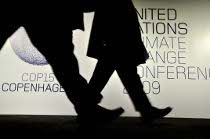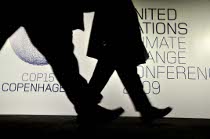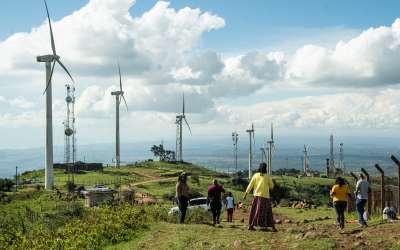Divisions at Bonn
After the failure of negotiations to agree a new climate pact in Copenhagen last December, talks have recently begun again in Bonn, Germany

 After the failure of negotiations to agree a new climate pact in Copenhagen last December, talks have recently begun again in Bonn, Germany. The meeting consists of 185 nations and is the biggest since Copenhagen. Despite hopes that this assembly would start building the foundation of a new pact, old rifts have already begun to form between the rich and poor countries attending.
After the failure of negotiations to agree a new climate pact in Copenhagen last December, talks have recently begun again in Bonn, Germany. The meeting consists of 185 nations and is the biggest since Copenhagen. Despite hopes that this assembly would start building the foundation of a new pact, old rifts have already begun to form between the rich and poor countries attending.
Margaret Mukahanana-Sangarwe, from Zimbabwe, who chairs the UN talks, issued a text that has been perceived by some as the basis of negotiations. However the aim of this text has been disputed. The US believes it was not supposed to be negotiated upon, Jonathan Pershing, head of the U.S. delegation, said "Our view is that the text is Margaret's effort to elicit views so she can develop a formal negotiating text . . . It's a constructive next step." However the head of the South African delegation, Alf Wills, claimed it was "completely unbalanced" and focused too much on cutting the greenhouse gas emissions of developing countries. Although a revised edition will now be released it is still uncertain that a decision will be reached from it.
Latin American countries such as Bolivia, Venezuela and Cuba claimed they could not start negotiations on the new text. They are of the opinion that there is too much emphasis on the Copenhagen Accord, which they opposed in December. "The chair has prioritized the Copenhagen Accord", Rene Gonzalo Orellana Halkyer of the Bolivian delegation stated.
Christina Figueres, the incoming UN climate chief will inherit this growing problem of division between the rich and the poor. She aims to rebuild trust after the failure of the Copenhagen Summit and wants rich nations to keep their promises of aid to developing countries, to help them meet their climate targets. At Copenhagen, world leaders pledged to give $30 billion between 2010-2012 to help poor countries establish environment friendly development programmes but many developing nations are sceptical about this promise. Oxfam believe that some rich nations want this aid to be in the form of loans rather than grants, which would simply plunge poor countries further into debt.
It is evident that the divide between rich and poor nations and the consequent issues that remain from talks at Copenhagen are going to cause complications at Bonn. One of the major debates will probably be over how much the rich, industrialised countries intend to contribute towards reducing emissions worldwide. If this rift is not worked upon at the Bonn conference the issue will resurface at the Cancun Summit this December and continue to put a delay on a climate bill to replace the Kyoto-Protocol.
Author: Rachael Bristow | Climate Action
Image: CIAT - International Center for Tropical Agricultu | Flickr





